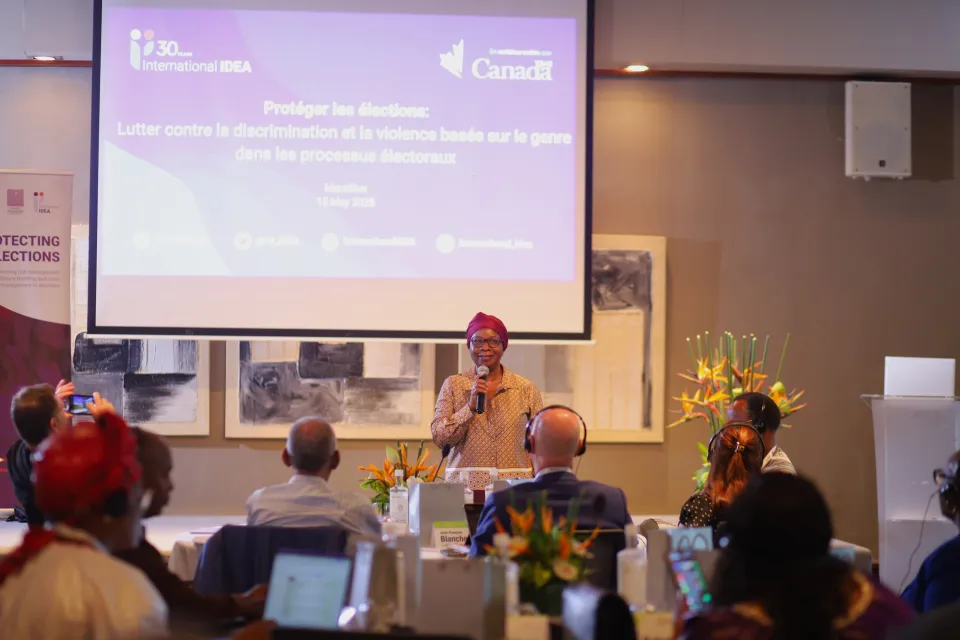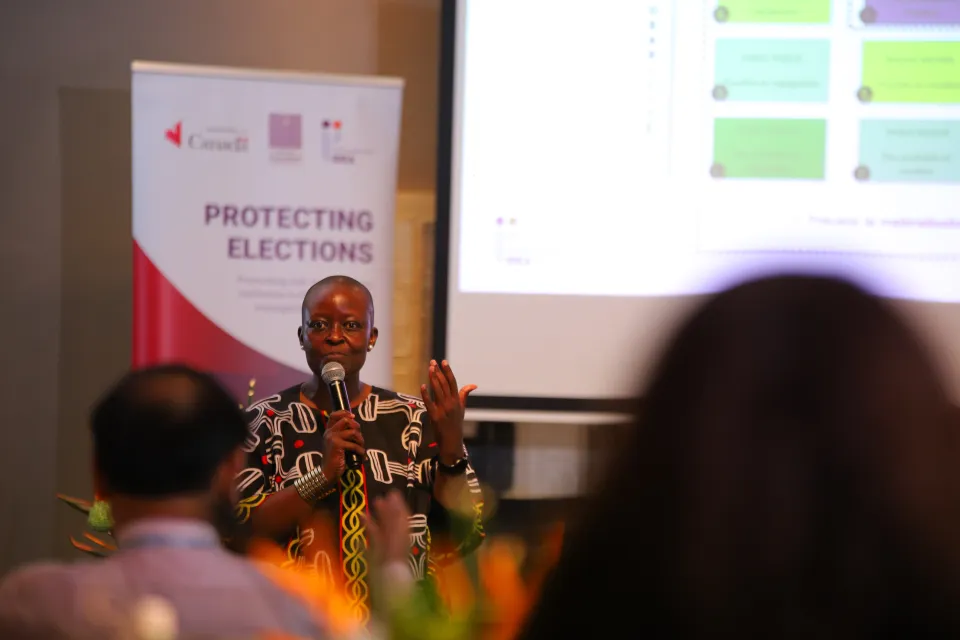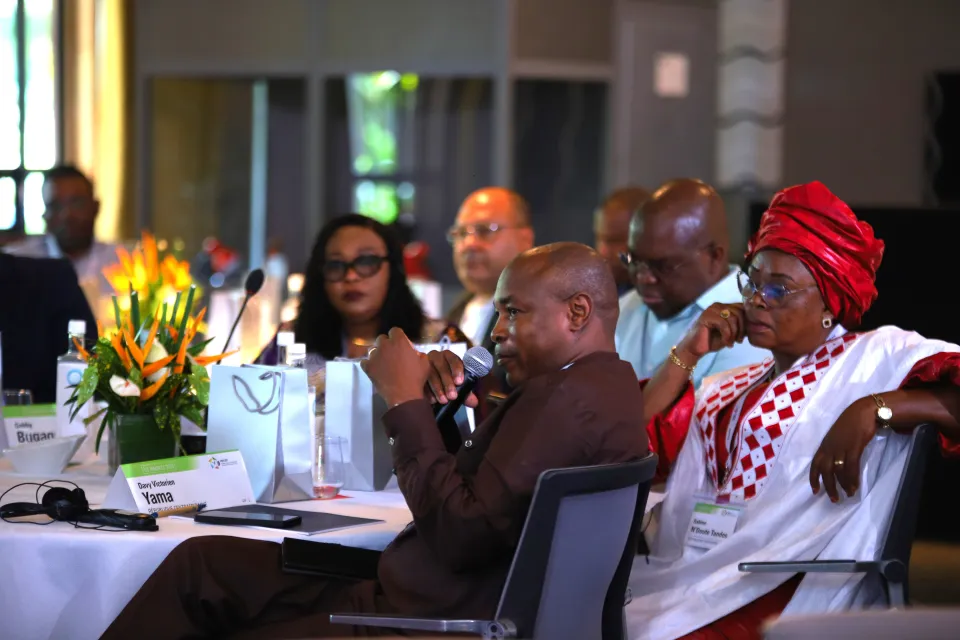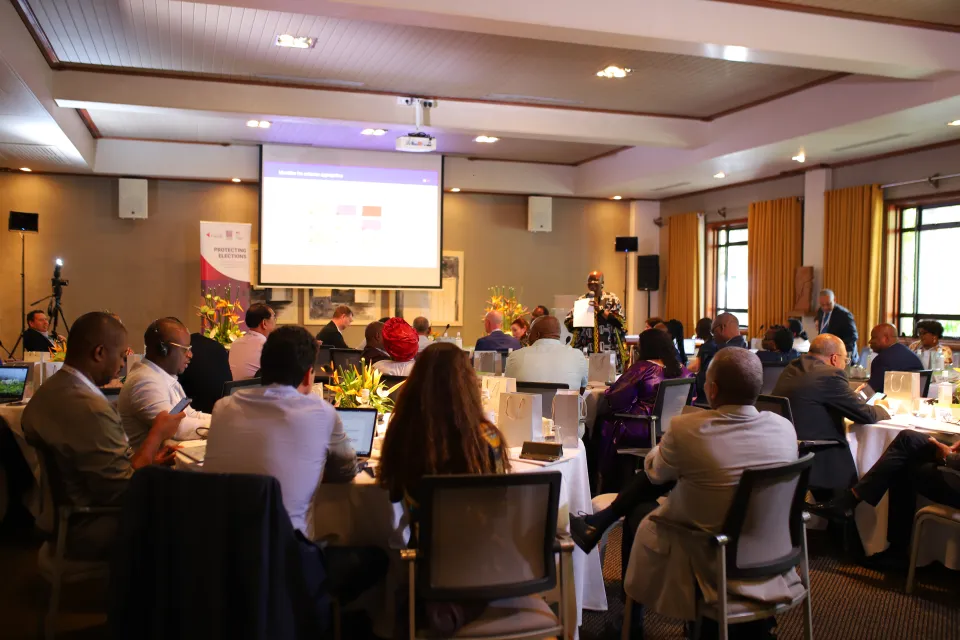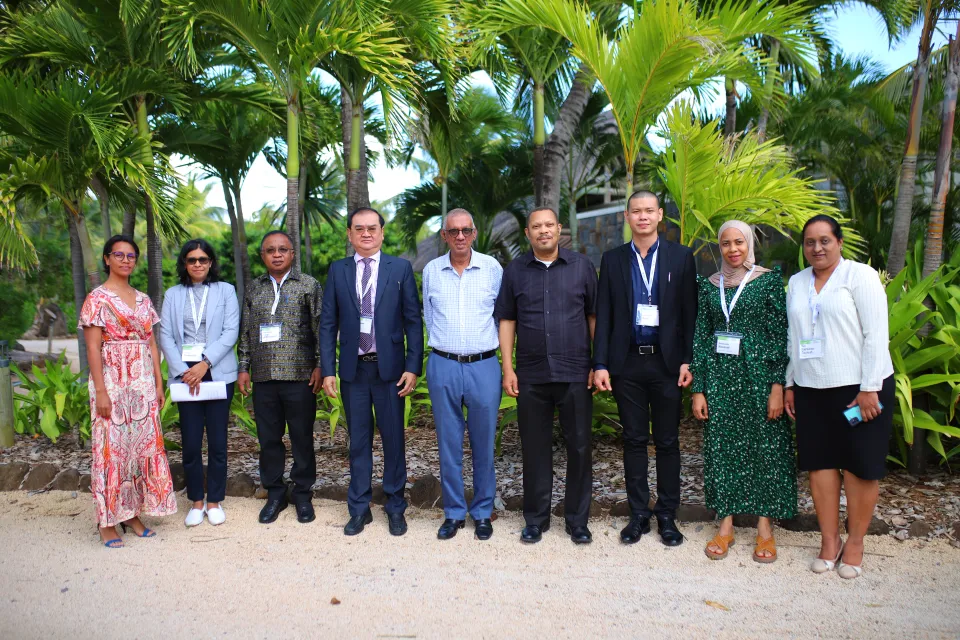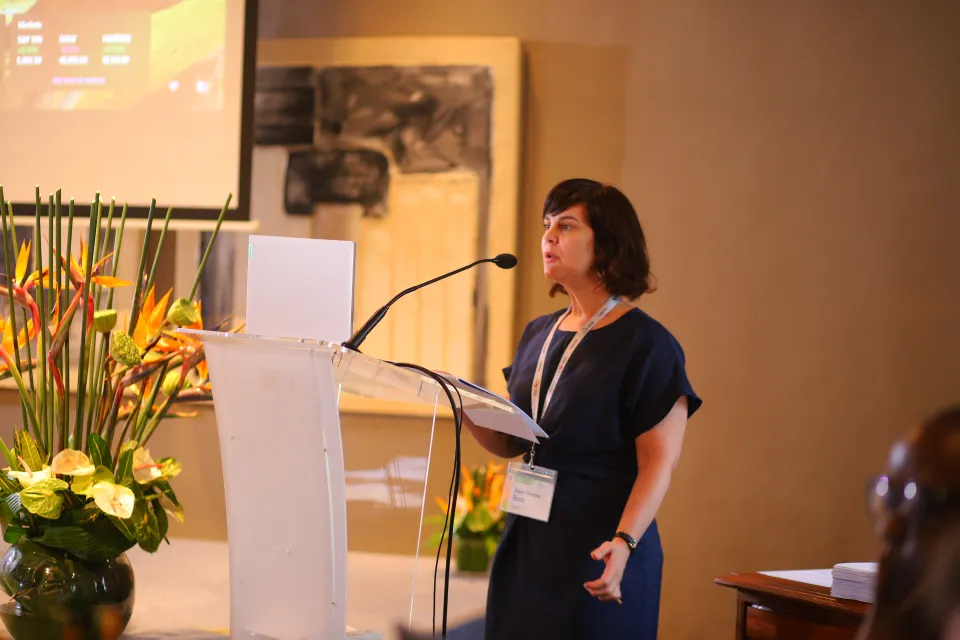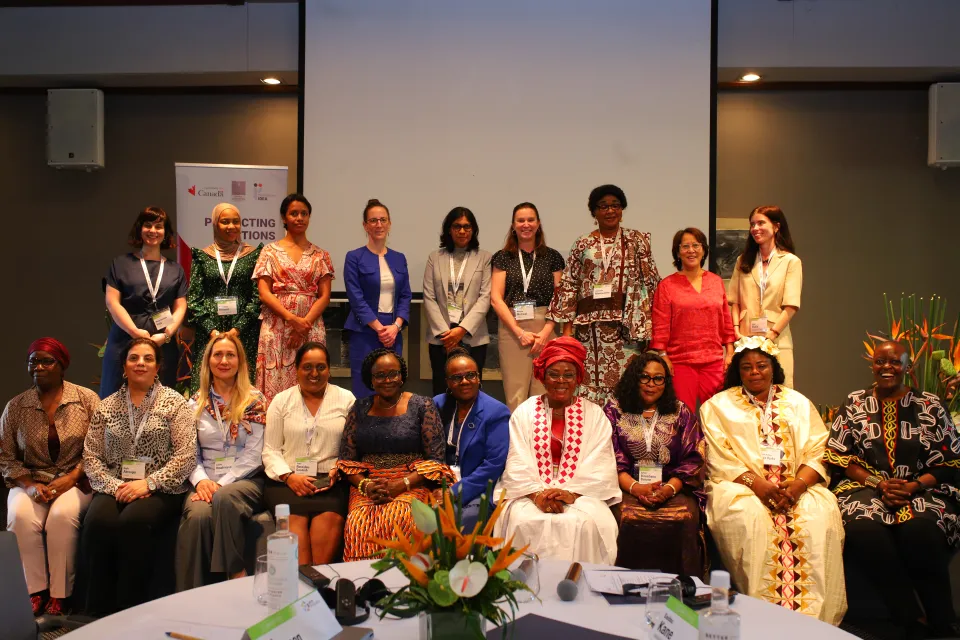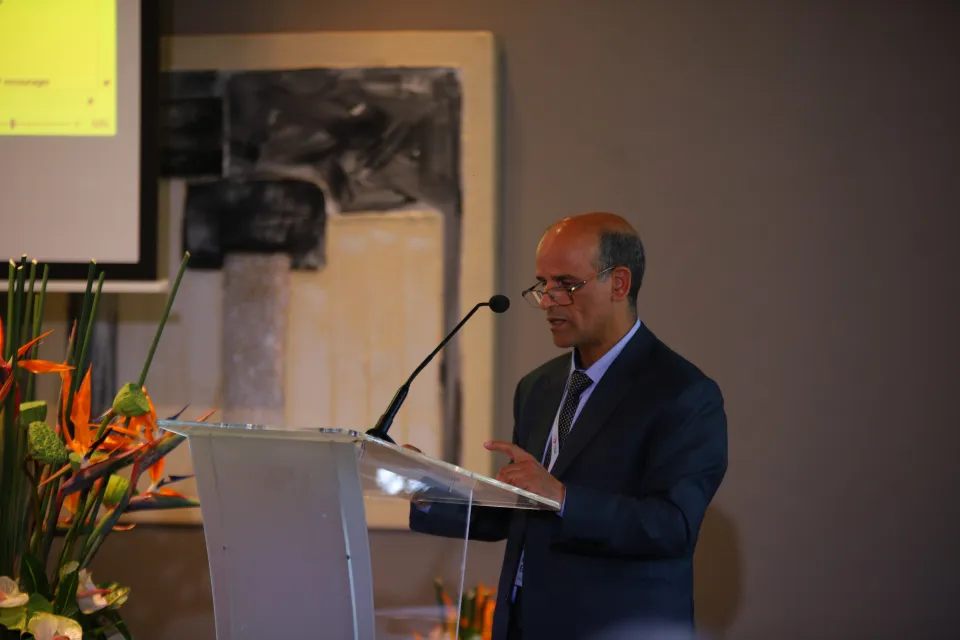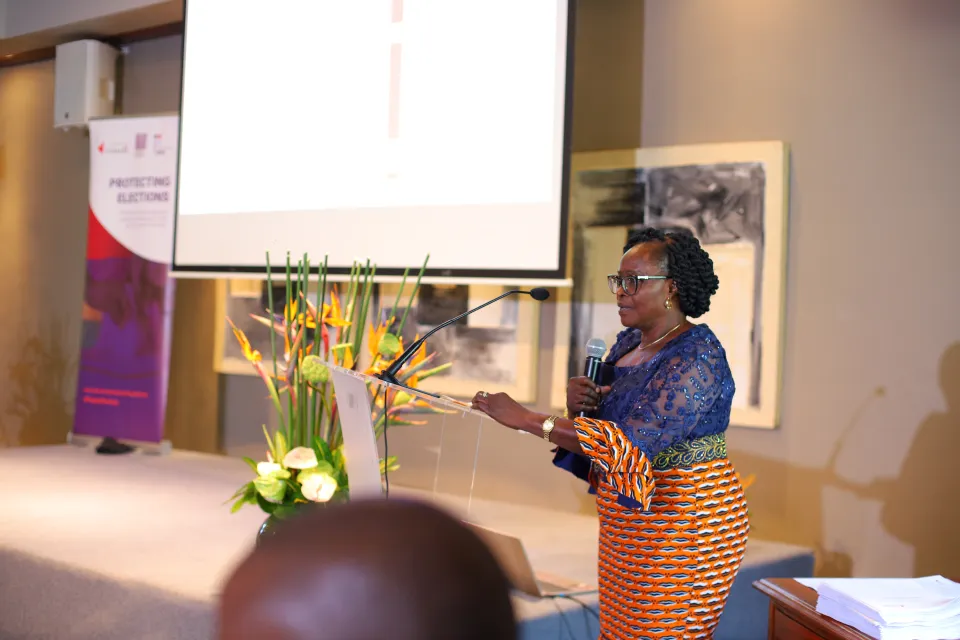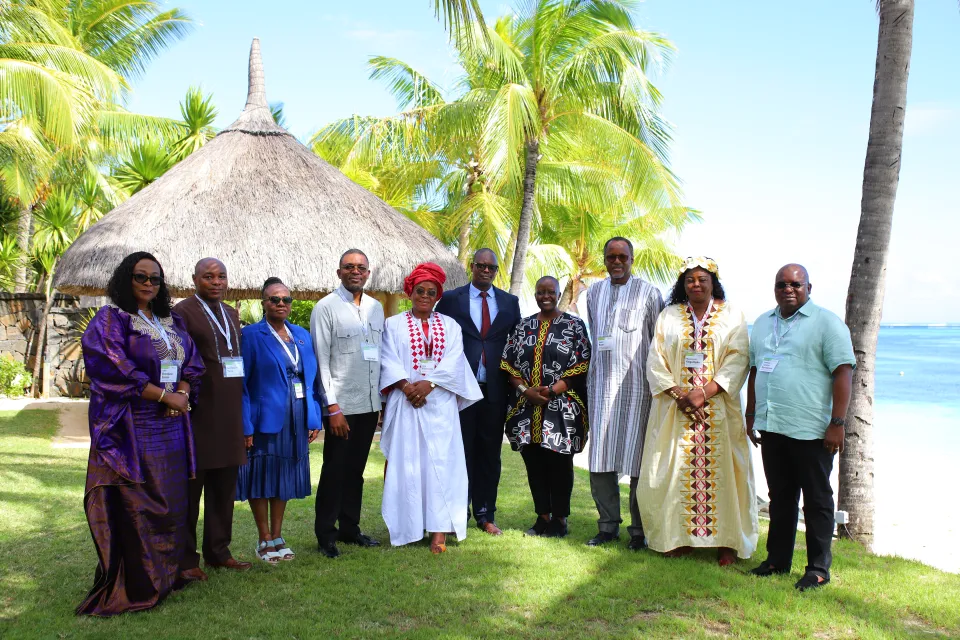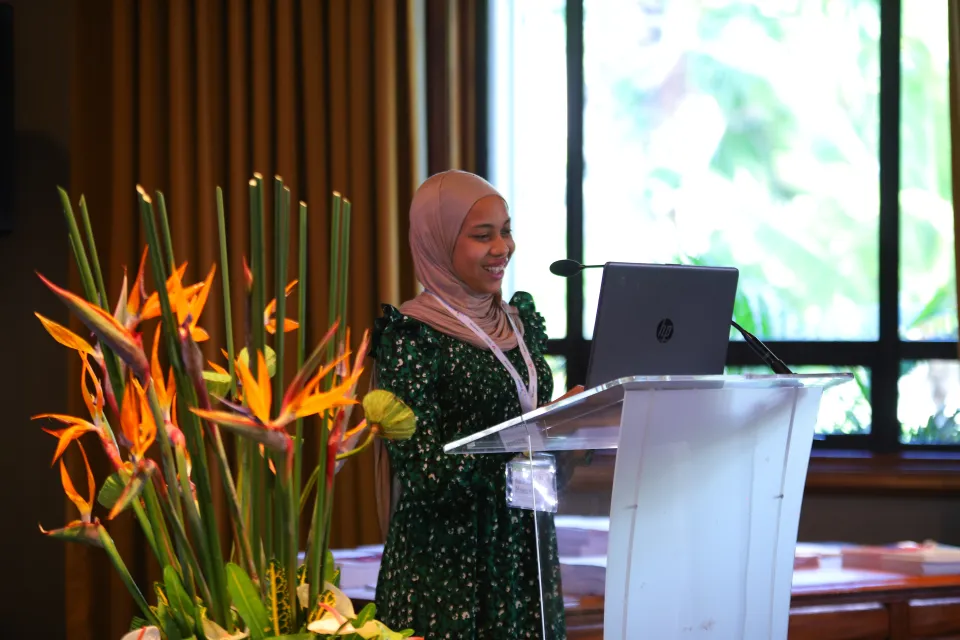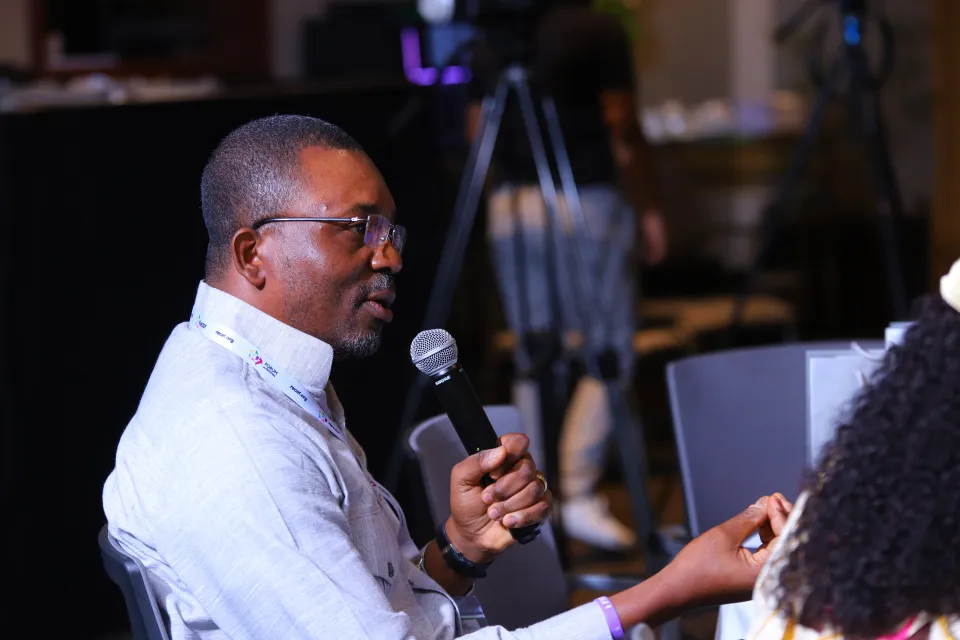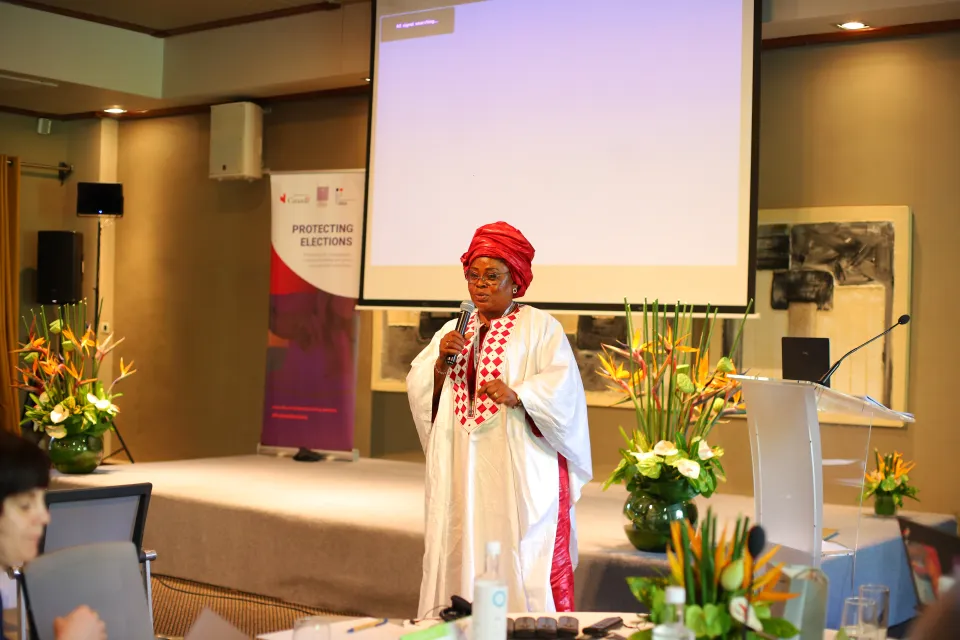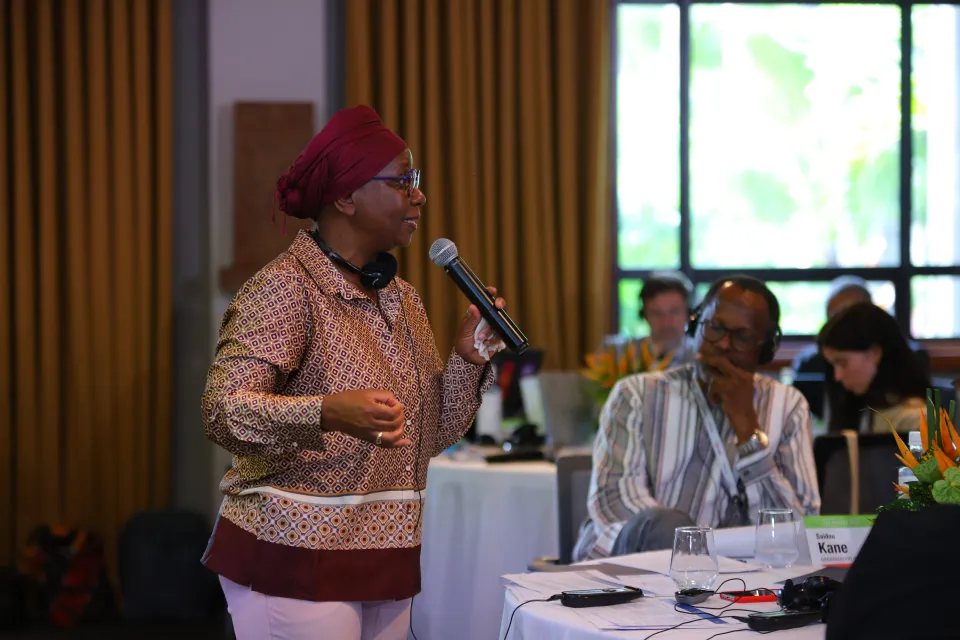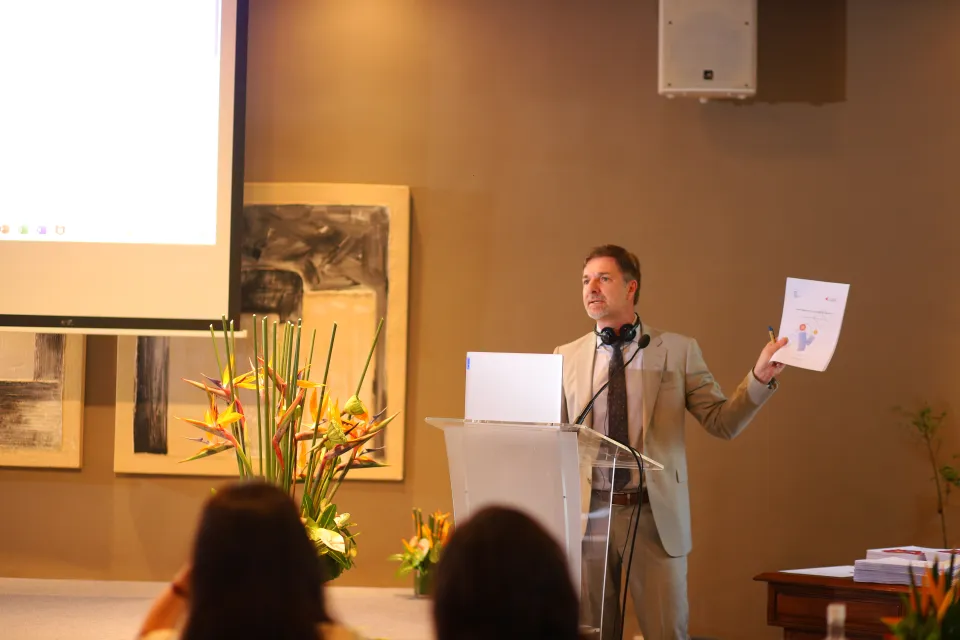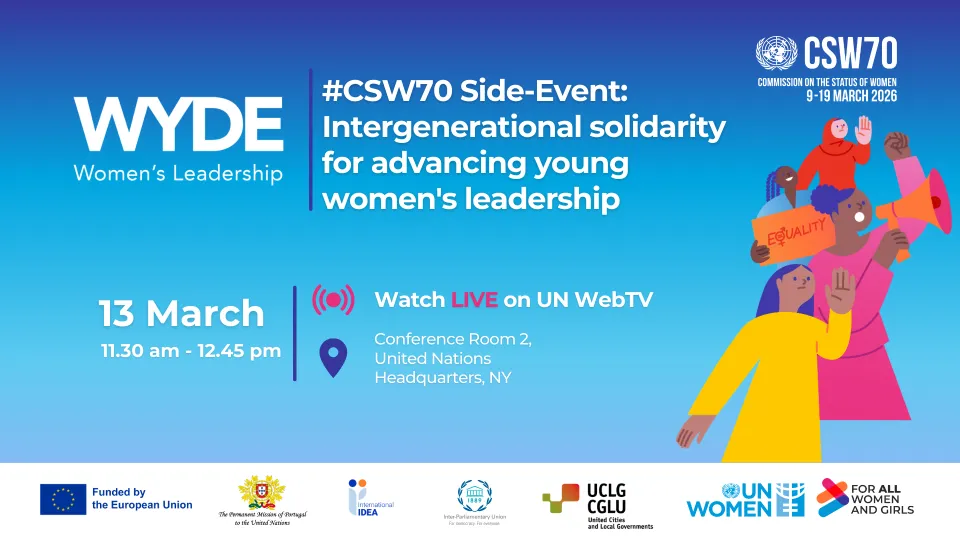Francophone EMBs Addressing Gender-Based Discrimination and Violence in Elections
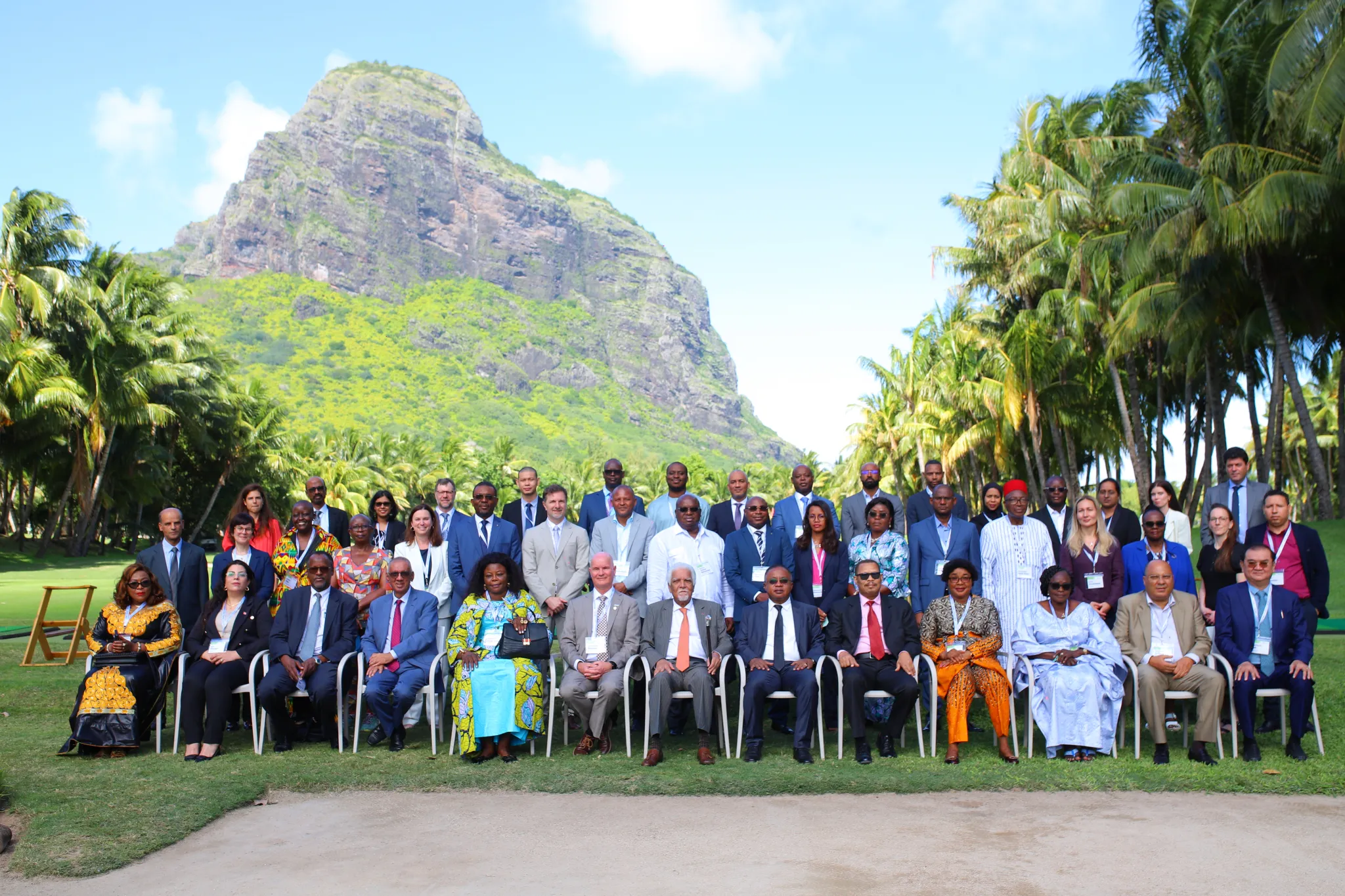
In both transitional and well-established democracies, gender-based discrimination and violence continue to hinder women’s full, equal, and meaningful participation and representation in political and electoral spheres —whether as voters, candidates, election administrators, observers, or leaders. To address this persistent and urgent challenge, International IDEA’s Protecting Elections project places strong emphasis on integrating gender dimensions across all its resources and activities. While gender is a cross-cutting theme throughout the project, this was the first event solely dedicated to addressing gender-based discrimination and violence in electoral processes and contexts.
Held under the RECEF General Assembly and back-to-back with an earlier Protecting Elections workshop, this session brought together 40 representatives from 20 RECEF member states, along with delegates from the African Union, ECONEC, Réseau électoral de l’océan Indien (REOI), Organisation internationale de la Francophonie, and Global Affairs Canada—the project’s donor. The workshop was conducted mainly in French and tailored for an audience of electoral networks.
The one-day event combined plenary presentations with interactive group sessions, creating space for both knowledge sharing and practical exercises. Participants were guided by facilitators from International IDEA, RECEF, the Office of the Electoral Commissioner of Mauritius, and an external gender expert (Ms Rachelle Ouku). Drawing on the same methodology as the earlier Protecting Elections workshop, the sessions focused on identifying and classifying risks using French version of the Protecting Elections Electoral Risk Heat Map model. These structured discussions were enriched by case studies from the electoral commissions of the Central African Republic and Togo, offering valuable insights and lessons learned on addressing gender based electoral risks.
During the group work sessions, newly developed reference materials were piloted for the first time. These guided participants in identifying, assessing and classifying risk factors that specifically contribute to gender-based discrimination and violence, and explore strategies for prevention and mitigation of such occurances. The experience was widely viewed as positive, with both participants and facilitators appreciating the structured, hands-on approach.
Overall, the event reinforced the importance of creating inclusive and safe spaces for electoral stakeholders to engage on shared challenges, not least those related to inclusion, safety, and gender equality in elections.
This event was made possible thanks to the partnership with RECEF and the Office of the Electoral Commissioner of Mauritius, the generous financial contributions support from the Government of Canada through the Protecting Elections project. Additional contributions were provided by the European Union through the SPEC project, which enabled the participation of representatives from the African Union and ECONEC.
